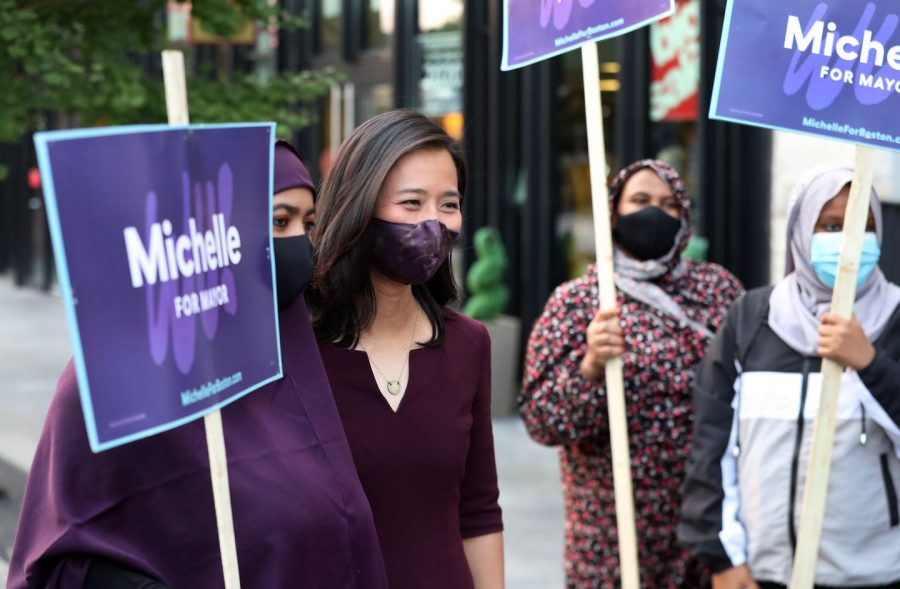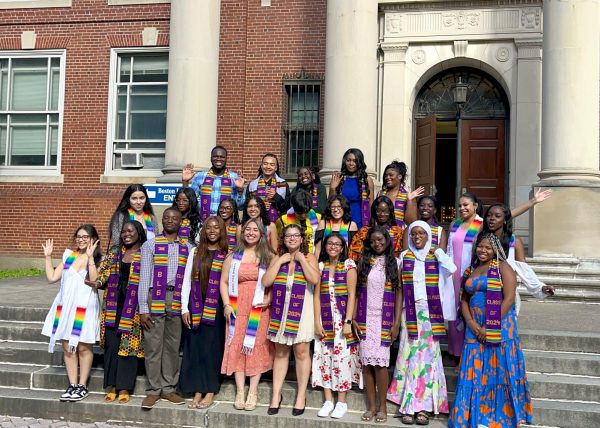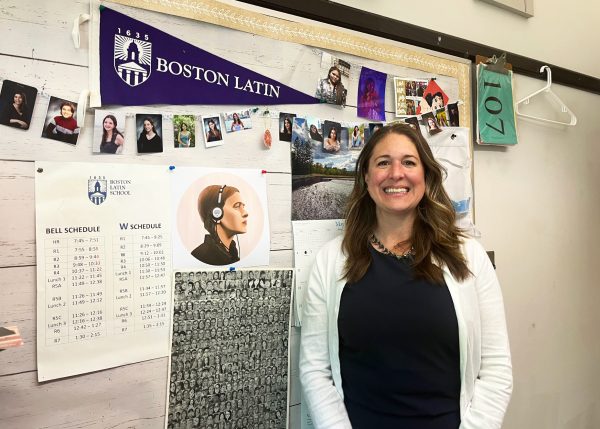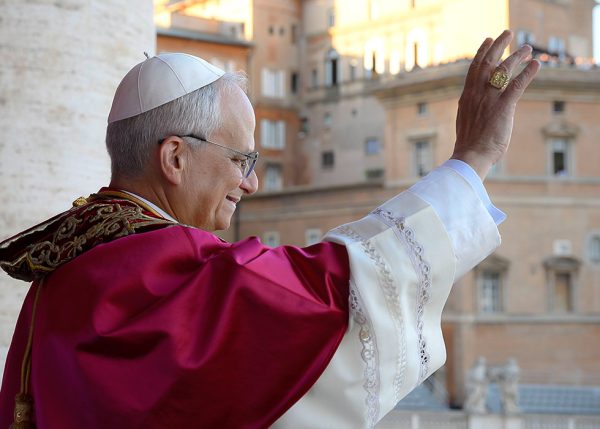Michelle Wu Connects With Boston’s Youth
Discussing topics ranging from racial identity to youth outreach, Boston mayoral candidate and City Councilor Michelle Wu held a press conference on May 10 to connect with the city’s student journalists.
Over the course of the conversation, Wu mentioned her goals for addressing racism, emphasizing that the increase in racially charged violence has caused many people of color (POC) to worry about their safety. She hopes to not only address Boston’s racial issues in the short-term, first by maximizing resources to reduce the hesitation of students of color returning in-school, but also to continue in the long-term.
Wu explains, “Communities are being marginalized and face violence on a daily basis that long predates COVID-19. […] And so, this is a way to speak out, to build infrastructure, and organize across the communities to end racism.”
The infrastructure and plans to which Wu refers to consists of increasing access to affordable housing and expanding citizen voice in city budgeting, as well as highlighting and investing in Boston’s small businesses, especially those owned by POC and women.
Boston Latin School student Maisha Kazi (II) adds, “Small businesses really are the backbone of the city but can easily be neglected, so I really appreciate her attention to them.”
Closing the racial wealth gap is also one of the goals of Wu’s most well-known policy: the Boston Green New Deal. Her 49-page plan addresses the urgency of climate change, the reasons why cities need to start the race to save the climate in America and, most importantly, her vision and policies for a green Boston.
Aside from the Boston Green New Deal, another way Wu is tying in wealth equality with the environment is through her “Free the T” initiative, which would remove the fares for public transportation. By making Boston’s trains and buses more accessible, Wu hopes to alleviate traffic, increase transit equality and reduce the negative effects of motor vehicles on the environment.
The May 10 event is part of a series of virtual student press conferences, which are part of a broader goal of reaching the youth of Boston. Wu’s campaign team realizes that to maximize support and passion for her plans, they must reach out to all demographics of the city, including the youth. Her team currently works with student-run organizations such as Youth for Wu and Boston’s Student Advisory Council and plans on doing so in the future if elected.
Wu comments, “When it comes to the issues that our community is facing, young people have the greatest stake in these policies, [and] have led every major movement for progress and equity and equality in this country. And so, we intend to model on the campaign how we will lead an office.”
Born in Chicago, Illinois to Taiwanese parents, Wu’s extensive history in politics includes working in Boston City Hall in the Office of Administration and Finance in 2010, as well as being political and constituency group organizer for Massachusetts Senator Elizabeth Warren’s campaign in 2012. The year after, she was the second woman of color elected to the Boston City Council, and became the first Asian-American and the first female president of color of the Boston City Council in 2016.
Communications Director for Wu’s campaign, Sarah Anders, notes the impact Wu has made: “At this time, in Boston, the council is majority people of color and women. [Wu] has been a huge part of the transformation of our leadership by shepherding through ideas that, a lot of times, people said were impossible.”
Wu entered the 2021 Boston mayoral race in September 2020. With the election just five months away, a recent WBUR poll found that 47 percent of those surveyed had a positive view of Wu, ahead of Acting Mayor Kim Janey. If elected, she will make Boston history as the second woman and first Asian-American to do so.
Assistant Head of School Mr. Steven Chen concludes, “[People like Wu are currently] not represented in our politics and leadership. This is an opportunity for young people […] to see that there is no place where you can’t have a voice at the table. For Wu to have that voice and to be that role model, regardless of your politics, is pretty inspiring.”






